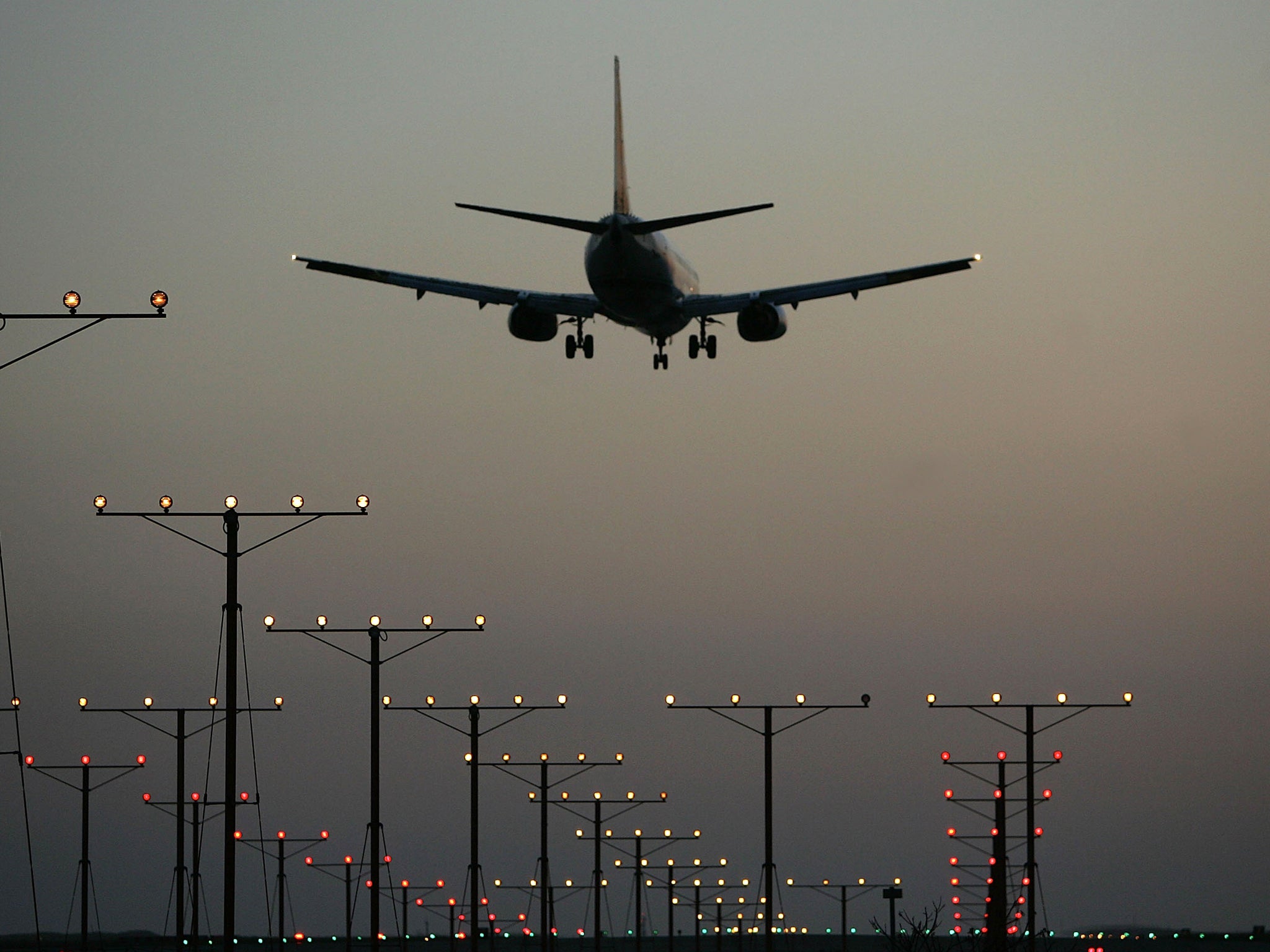Record jump in air fares sends UK inflation soaring to 2.7%
Prices rose across European, long-haul and domestic flights

Your support helps us to tell the story
From reproductive rights to climate change to Big Tech, The Independent is on the ground when the story is developing. Whether it's investigating the financials of Elon Musk's pro-Trump PAC or producing our latest documentary, 'The A Word', which shines a light on the American women fighting for reproductive rights, we know how important it is to parse out the facts from the messaging.
At such a critical moment in US history, we need reporters on the ground. Your donation allows us to keep sending journalists to speak to both sides of the story.
The Independent is trusted by Americans across the entire political spectrum. And unlike many other quality news outlets, we choose not to lock Americans out of our reporting and analysis with paywalls. We believe quality journalism should be available to everyone, paid for by those who can afford it.
Your support makes all the difference.A 22 per cent surge in air fares helped lift inflation higher than expected last month to heap more pressure on households as the rate of consumer price index (CPI) inflation increased to 2.7 per cent in May.
CPI inflation climbed to 2.7 per cent, up from 2.4 per cent in April, the Office for National Statistics (ONS) said.
Stubbornly high inflation was worse than City expectations for a 2.6 per cent rise in prices, and is expected to peak around 3 per cent over the next few months to ensure a summer of pain for households.
Inflation resumed its upward climb in May as air fares leapt 22 per cent from April - the highest rate on record for this time of year - while the rate of price falls for petrol and diesel slowed.
Prices rose across European, long-haul and domestic flights, the ONS said, adding that higher air fares were not necessarily linked to the early timing of the Easter holidays.
Overall transport prices rose by 0.4 per cent between April and May, the ONS said.
The price of clothing and footwear also rose 1.2 per cent month on month to tighten the squeeze on households, as the cost of women's outdoor clothing increased during a colder-than-normal month.
But food and drink prices helped hold back inflation, with price falls for meat, vegetables, fruit, sugar, sweets and jams.
Inflation is expected to surge even higher above the Bank of England's 2% target in the coming months as higher gas, electricity and water bills, plus rising tuition fees, send it to a summer peak.
The figures come ahead of minutes due this week from the Bank's June interest rates meeting - outgoing governor Sir Mervyn King's last meeting - which will reveal the level of support for more economic stimulus.
The Bank's Monetary Policy Committee voted to hold its quantitative easing (QE) programme steady at £375 billion this month, also holding rates at 0.5 per cent, amid signs of improvement in the economy.
The Bank is expected to hold off more QE until the arrival of new governor Mark Carney next month.
Today's figures also showed Retail Prices Index inflation, which includes housing costs, rose to 3.1 per cent in May, from 2.9 per cent in April.
Ratings agency Moody's said: "Ongoing price pressures combined with austerity will squeeze household finances through 2013."
Vicky Redwood, economist at Capital Economics, said that while higher than expected, inflation's peak is "hopefully not too far away now".
She said: "Inflation will probably get above 3 per cent in the next month or two - meaning that one of Mr Carney's first jobs will be to write an explanatory letter to the Chancellor."
The Treasury said inflation is down by almost a half from its peak of 5.2 per cent in 2011.
A spokeswoman said: "To help families with the cost of living, the Government has increased the tax-free personal allowance to £10,000, which will take 2.7 million people out of income tax altogether and save a typical taxpayer over £700.
"(It has) frozen fuel duty which has kept petrol prices 13p per litre lower than they would otherwise have been."
But TUC general secretary Frances O'Grady said Britain is set for a "joyless" recovery.
She said: "Britain's great wage squeeze shows no sign of abating.
"Forty consecutive months of real wage falls means people have less to spend on the high street, and are why economic green shoots are not being felt across the country."
Additional reporting, PA
Join our commenting forum
Join thought-provoking conversations, follow other Independent readers and see their replies
Comments